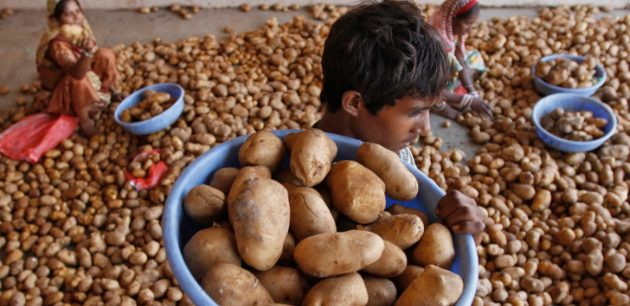#SouthAfrica #freshproduce #globalunrest #climaterelatedissues #traderestrictions #fuelandfertilizer #exportbans #supplychain #marketaccess #Europeanmarket #economicviability
The fresh produce industry in South Africa is grappling with various challenges stemming from global unrest, climate-related issues, and trade restrictions. With fuel and fertilizer costs accounting for a significant portion of input expenses, the industry’s stability is at risk. This article explores the recent developments in the industry and discusses the consequences of these challenges.
The vulnerability of South Africa’s fresh produce industry has been exacerbated by global unrest and climate-related problems. Trade restrictions, along with geopolitical tensions affecting fuel and fertilizer availability, have further complicated the situation. According to economist Thabile Nkunjana, numerous countries have implemented export bans and limitations on food items such as onions, potatoes, fruit, and processed food.
In 2022, a substantial portion of South Africa’s vegetable exports, comprising mainly potatoes and onions, were purchased by African countries, accounting for 64% of the total. Approximately 10% of vegetable exports went to Asia and the Middle East, while the European Union accounted for a significant 22%.
Interestingly, due to high energy prices affecting greenhouse production and vegetable supplies within the European Union, short-term opportunities have emerged for South African fresh produce. This development presents a potential avenue for South African producers to tap into the European market.
The impact of global unrest, climate issues, and trade restrictions on South Africa’s fresh produce industry is multifaceted. Firstly, the rising costs of fuel and fertilizer, which constitute 25% of the input expenses for the average South African potato producer, pose financial challenges. These cost burdens may lead to reduced profitability and economic viability for farmers.
Moreover, the implementation of export bans and limitations by various countries disrupts the supply chain, limiting market access for South African producers. This volatility can result in significant fluctuations in demand and prices, affecting the overall stability of the industry.
On the positive side, the temporary opportunities arising from the European Union’s energy-related challenges present a silver lining for South African fresh produce exporters. By capitalizing on the short-term market gaps, producers can explore new avenues and potentially expand their presence in the European market.
In response to these challenges, the National Agricultural Marketing Council sponsored a session on South Africa’s fresh produce chain. The session aimed to address the recent trends in international trade and their specific impact on the country’s fresh produce industry. The insights provided by economist Thabile Nkunjana shed light on the industry’s vulnerabilities and opportunities for growth.







